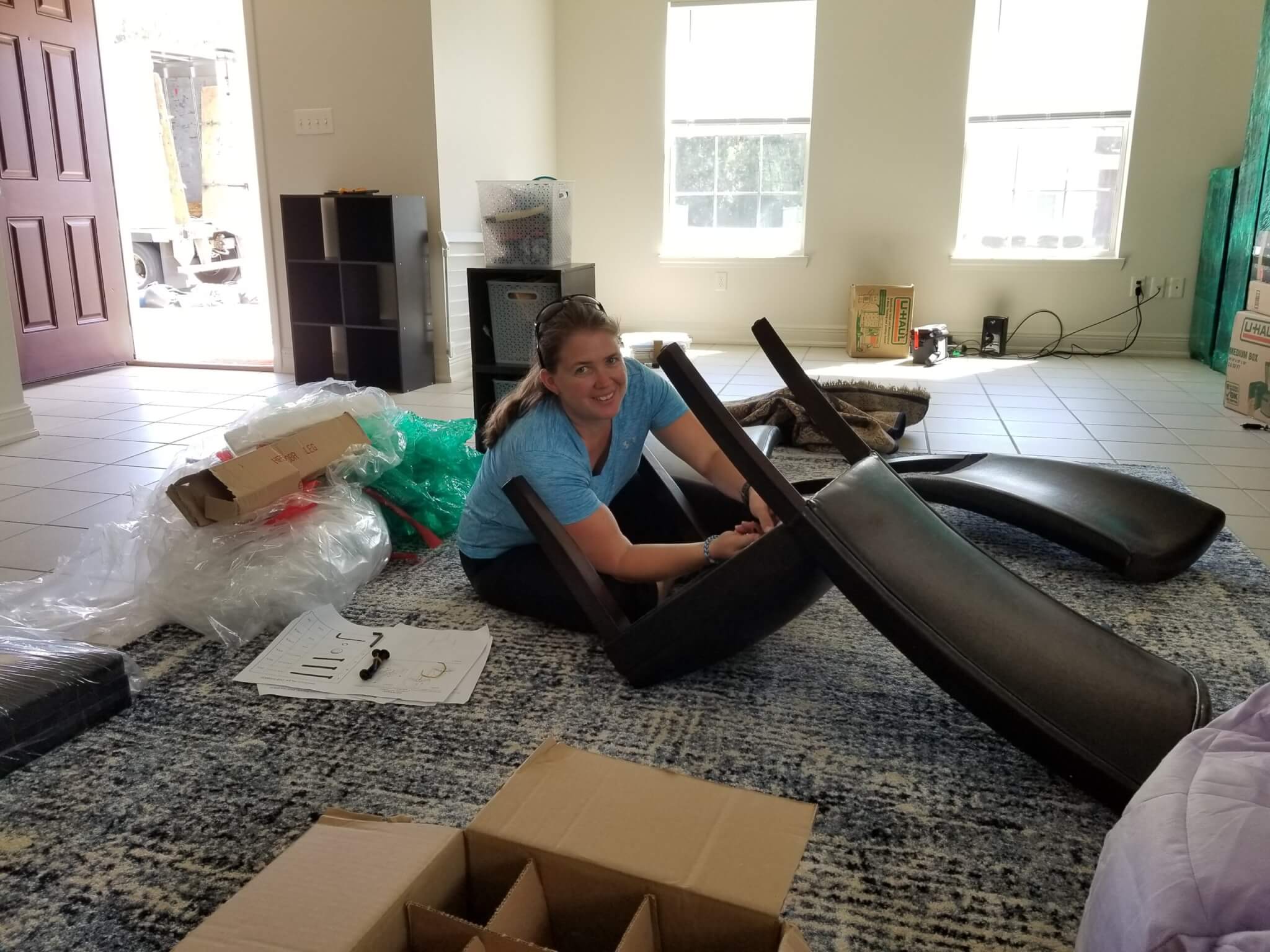During a Colorado blizzard, Mallory Pevoto, Army spouse and mom of three, was snowed in with her family. They’re taking in one of the last weather days at Fort Carson before moving to Fort Moore in Georgia — their 14th move in 16 years of service.
“All of those [moves] are completely DITYs. We’ve never used the contracted movers,” Pevoto said.
Military families, on average, can PCS every 2.5 years, depending on service branch and MOS. But not everyone opts for the traditional TMO (Traffic Management Office) route. As newlyweds Pevoto’s husband said they were moving themselves and she followed suit, not knowing other options — and she isn’t alone.
RELATED: DITY expert: Army spouse creates online following with PCS tips
Lizann Lightfoot and her husband, a Marine, made their first move as a married couple from Marine Corps Base Quantico, Virginia, to Camp Lejeune, North Carolina. She said she “didn’t know there was an option for the military to move you.”
After their first DITY move, both couples embraced this route. Pevoto and Lightfoot share the benefits that have kept them rinsing and repeating this process.
BENEFITS OF A DITY MOVE
Having control: With TMO, all household transition details are dictated. DITY moves allow you to choose your own dates.
“You can outsource if you want,” Pevoto said. “You can do a lot of the work if you want.”
DITY can also prevent a rushed process.
“You can spend several days packing or unpacking a trailer, then have the company pick it up when you are done. You also personally handle everything you own, instead of trusting it to other people,” Lightfoot said.

Shorter transition times: Pevoto says this benefit is helpful for families with children.
“The fact that we get to move in and set up their rooms right away” is a game changer, she said. With TMO, there’s no guarantee of the delivery time for household goods, leaving many having to make accommodations while they wait.
Reimbursement: Most people who choose DITY do it for this reason.
Lightfoot said, “We usually made several thousand per move.”
The funds provided them the opportunity to replace furniture and buy new appliances, when needed.
Challenges of a DITY: While the benefit of pocketing the allocated funds is enticing, DITY moves require considerable effort.
Be mindful of the upfront investment, scheduling requirements and legwork that goes into personally packing your entire life up for this transition.
“If you don’t like buying things at IKEA, you may not want to attempt this,” said Lightfoot. She remembers the hours they spent dismantling and reassembling their furniture pieces.
HOW TO DECIDE IF DITY MOVES ARE RIGHT FOR YOU
- Identify your season of life. Lightfoot said, “If you are pregnant or have a baby, if your service member is deployed, if you don’t have local friends who can help load the truck, then it’s completely acceptable to skip the DITY move and let the military professional movers handle it.”
- Do your research. There are several parts to a DITY move that the service member is accountable for, like knowing the weight allowance which is based on rank. Lightfoot advises to “use estimators or previous move tickets to see how much you have.” Awareness of the requirements can ensure an organized move.
- Identify your goals and budget Pevoto said whether your goal is to make a little extra money or get to your next duty station as fast as possible, each move will look different. Once you have identified those goals, you can move forward on how to budget accordingly.
- Tackle the move as a team. Decide each family member’s role (including the children). So, there’s no “unrealistic or unspoken expectations of who’s doing what,” Pevoto said.
If having control and flexibility during a move is your top priority, consider a DITY but do it with your eyes wide open.
“A DITY move is a huge stressor for any military family, but it is certainly possible, and sometimes a great option,” Lightfoot added.
Read comments










































